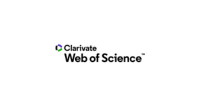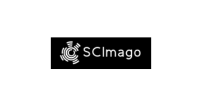PLANT EXTRACTS USED FOR THE CONTROL OF ENDO AND ECTOPARASITES OF LIVESTOCK: A REVIEW OF THE LAST 13 YEARS OF SCIENCE
DOI:
https://doi.org/10.5380/avs.v25i4.72145Palavras-chave:
multidrug resistance, organic farming, parasite infections, phototherapy, ruminants.Resumo
A variety of endo and ectoparasites can affect livestock, causing poor animal performance and low welfare conditions. Haemonchus contortus (Trichostrongyloidae), Rhipicephalus microplus (Ixodidae), Cochliomyia sp. and Lucilia sp. (Calliphoridae) are some of the most important parasites to livestock in Brazil and in many other tropical and subtropical countries, where farmers need to be vigilant. Although a constant parasite control uses large-spectrum anthelmintics or synthetic insecticides, giving a timely potent reduction of the infections, they also represent a threat to the lifespan of these compounds due to drug-selected parasites. Thus, the development of plant-based therapies is a solid alternative for standard, agroecological, and holistic farming systems, as well as it is an important ally to combat drug resistant parasite populations. In this article, we discussed the scientific literature on plant extracts, notably hydroalcoholic extract or essential oils, used for the control of the above livestock parasites published in the last 13 years. Our objective was to pinpoint the most important issues for this promising area of research, exploring the potential and the challenges that are facing us by examining more than 150 in vitro and in vivo studies. Almost all the authors reported positive data from plants or isolates, the most important challenges that were faced during our search were the lack of a proper experimental study design, and the deficiency in the characterization of the plants used. It is our opinion that plant-based products may be a solid choice for parasite control in livestock animals achieving high welfare standards and mitigate farming input (i.e. use of chemicals and their waste into the environment).
Publicado
Como Citar
Edição
Seção
Licença
Autores que publicam nesta revista concordam com os seguintes termos:
- Autores mantém os direitos autorais e concedem à revista o direito de primeira publicação, com o trabalho simultaneamente licenciado sob a Creative Commons - Atribuição 4.0 Internacional que permite o compartilhamento do trabalho com reconhecimento da autoria e publicação inicial nesta revista.
- Autores têm autorização para assumir contratos adicionais separadamente, para distribuição não-exclusiva da versão do trabalho publicada nesta revista (ex.: publicar em repositório institucional ou como capítulo de livro), com reconhecimento de autoria e publicação inicial nesta revista.
- Autores têm permissão e são estimulados a publicar e distribuir seu trabalho online (ex.: em repositórios institucionais ou na sua página pessoal) a qualquer ponto antes ou durante o processo editorial, já que isso pode gerar alterações produtivas, bem como aumentar o impacto e a citação do trabalho publicado.













